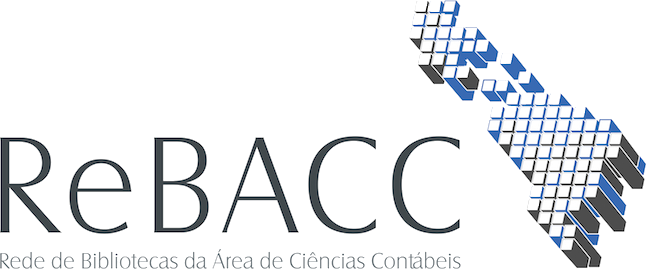Use este identificador para citar ou linkar para este item:
http://rebacc.crcrj.org.br/handle/123456789/3482| Título: | Size firm and others determinants of the effective taxation on earnings in Brazil TAMANHO DA FIRMA E OUTROS DETERMINANTES DA TRIBUTAÇÃO EFETIVA SOBRE O LUCRO NO BRASIL |
| Palavras-chave: | Firm Size. Effective Taxation. Political Costs. Political Power. Determinants of the Taxation. Tamanho da Firma. Taxa Efetiva de Tributação. Custos Políticos. Poder Político. Determinantes da Tributação. |
| Editora / Evento / Instituição: | AnpCONT |
| Descrição: | Several researches, using databases from different countries, have dedicated themselves to investigate a possible relationship between particular firms characteristics, especially the size, and effective tax that they support, although no consensus has been defined on relationship analyzed. This study aims to investigate whether the effective tax on the Brazilian company earnings can be explained by its characteristics, specifically, size, debt, capital intensivity, inventories intensivity and profitability, everything under assumptions of the political costs hypothesis and of theory of economic regulation. The sample consisted of 565 firms, classified in 8 sectors of activity, over the period from 1997 to 2011, which resulted in 4,368 firm-year. The investigation was made with the use of two statistical models whose estimations were performed by panel data technique. Results indicated that the size and especially debt can be considered determinants of effective taxation on earnings. It should be stressed that, in the case of size, although the results are partly inconclusive, there they indicated the existence of a positive association with the taxation, which is consistent with political costs hypothesis assumptions. However, results also indicated the existence of a nonlinear relationship that suggests that from a certain size, firms would be able to reduce your taxation, which aligns with the political power hypothesis. Várias pesquisas, considerando bases de dados de distintos países, já se dedicaram a investigar uma possível relação entre características particulares das firmas, especialmente o tamanho, e a tributação efetiva que elas suportam, porém não existe um consenso no tocante às relações analisadas. O presente estudo teve por objetivo investigar se a tributação efetiva sobre os lucros das firmas de capital aberto brasileiras pode ser explicada por características particulares, especificamente, tamanho, endividamento, intensividade de capital, intensividade de estoques e lucratividade, com amparado na hipótese dos custos políticos e na teoria da regulação econômica. A amostra compreendeu 565 firmas, classificadas em 8 setores de atividade econômica, ao longo do período entre 1997 a 2011, o que resultou em 4.368 firmas-ano. A investigação se deu com o emprego de dois modelos estatísticos, cujas estimações foram realizadas por meio da técnica de dados em painel. Os resultados indicaram que o tamanho e, sobretudo, o endividamento podem ser considerados determinantes da tributação efetiva sobre o lucro. Frise-se que no caso do tamanho, muito embora os resultados sejam inconclusivos, há a sinalização de uma associação positiva com a tributação, o que é consistente com as premissas da hipótese dos custos políticos. No entanto, os resultados também indicaram a existência de uma relação não linear que sugere que, a partir de um determinado tamanho, as firmas seriam capazes de reduzir a sua tributação, o que se alinha à hipótese do poder político. |
| URI: | http://rebacc.crcrj.org.br/handle/123456789/3482 |
| Outros identificadores: | http://asaa.anpcont.org.br/index.php/asaa/article/view/119 |
| Aparece nas coleções: | Revista ASAA |
Arquivos associados a este item:
Não existem arquivos associados a este item.
Os itens no repositório estão protegidos por copyright, com todos os direitos reservados, salvo quando é indicado o contrário.

